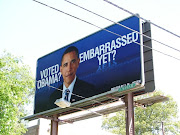Gov. Arnold Schwarzenegger proposed during private negotiations over the weekend to close the state’s $15.2-billion budget gap with a temporary but immediate one-cent hike in the state sales tax, according to legislative sources.
The proposal, floated in meetings with the Legislature’s leaders and their staff, hinges on lawmakers agreeing to automatic spending restraints and new powers for governors to cut programs whenever the state falls into the red.
People involved in the negotiations said Schwarzenegger, who has repeatedly vowed never to raise taxes, would back away from the proposal in the absence of the spending controls.
The increase of one cent per dollar would take effect soon after a budget is signed and last three to four years; after that, the tax rate would gradually drop. It would ultimately settle at a level lower than the current statewide rate of 7.25%.
Los Angeles County residents could face a separate half-cent-on-the-dollar sales-tax increase. The Metropolitan Transportation Authority board has proposed such a measure for the November ballot, with the money to fund transportation projects. If both the MTA and the Schwarzenegger proposals were to be implemented, the sales tax in Los Angeles County would jump to 9.75%.
The governor could declare that over time – perhaps a decade or longer – his statewide plan amounts to a tax cut. In the near term, it would raise more than $5 billion per year.
Administration officials said they would not comment on proposals made during closed-door budget negotiations.
“The governor is pushing Republicans and Democrats to come to the table immediately and reach a compromise because of the looming cash crisis we face,” said Schwarzenegger spokesman Matt David. “This compromise must include budget reform that prevents our state from being in this position.”
State finance officials have said California could run out of cash sometime next month if a budget is not enacted soon. Without a budget in place, the state may not be able to borrow billions of dollars it needs to cover government expenses until the usual flood of tax receipts arrives in the spring. The new fiscal year began July 1.
It is unclear whether lawmakers will embrace the governor’s proposal. His automatic spending restraints would be written into the state Constitution, something Democrats have long resisted, saying they could force steep cuts to schools and other programs and limit the Legislature’s flexibility.
And Democrats have expressed concern that sales taxes fall too heavily on the poor. They support higher income taxes on the wealthy and the repeal of tax breaks available to corporations.
Almost every Republican in the Legislature, meanwhile, has signed an oath never to support a tax increase. Assemblyman Chuck Devore (R-Irvine) predicted that Schwarzenegger’s proposal would win no GOP votes.
“You’re talking about raising the cost of living on working Californians at precisely the time inflation is beginning to raise its ugly head,” he said. “The last thing that hardworking Californians need right now is, in effect, an increase to their cost of living by making everything they purchase, with the exception of food and medicine, more expensive.”
Republicans are also wary of the governor’s proposed spending restraints, which they contend would not do enough to keep the state from continuing to run deficits. State spending has increased 39% since Schwarzenegger took office in 2003.
Any constitutional spending controls would require voter approval. The secretary of state’s deadline for lawmakers to place such a measure on the November ballot is Aug. 16. Other elements in a compromise spending plan could also require a sign-off from voters.
Among them is the governor’s plan to modernize the state lottery. Schwarzenegger says the state could raise billions a year by making improvements to the lottery that have been successfully implemented in other states. Such improvements would include expanding the number and variety of games and enhancing marketing.
Schwarzenegger initially proposed balancing this year’s budget partly by borrowing against a projected increase in lottery profits. But officials at the state treasurer’s office said a budget plan that was overly dependent on lottery revenue that might never materialize – or might fall far short of projections – could badly damage California’s standing on Wall Street.
Legislative leaders say they are open to including lottery changes in the budget, but only to help offset future deficits – after voters approve the changes and the state has a clearer picture of how much money can actually be generated.
Said Assembly Speaker Karen Bass (D-Los Angeles), who would not discuss the details of the private negotiations: “We’ve always said everything is on the table, and that’s still the case.”

Custom Search
News
Friday, November 07, 2008
Subscribe to:
Post Comments (Atom)










No comments:
Post a Comment